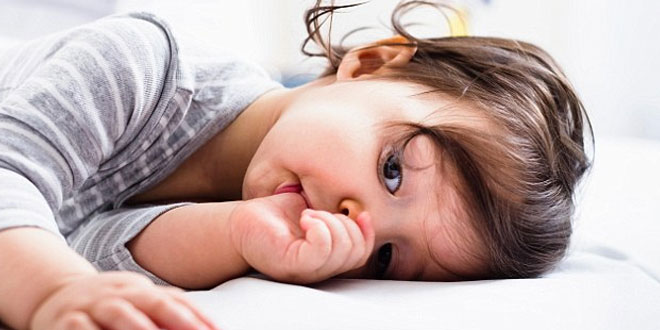
Sucking on thumbs may help build your child’s immunity
Children who suck their thumb or bite their nails may be less likely to develop allergies, according to a study published in the journal, Pediatrics. These childhood habits are thought to lead to early exposure to microbes, strengthening the immune system.
This study won’t please orthodontists. Although thumb-sucking can be bad for teeth, this childhood habit, together with nail-biting, could actually have positive effects in helping to prevent allergies, according to a study by researchers from New Zealand’s University of Otago and Canada’s McMaster University.
Although far from encouraging these habits – which can cause dental problems in children — the researchers found that they led to a natural early exposure to all kinds of allergens, such as dust, grass, animal hair (dog, cat, horse) or pollutants in general. This could give the immune system chance to develop natural defences when in contact with such microbes.
The study followed 1,000 children in New Zealand at ages 5, 7, 9 and 11. They were then tested at 13 and 32 years old for atopic sensitisation – a positive skin prick test to at least one common allergen. Among the participants, 31% regularly sucked their thumb or bit
The researchers found that at 13 years of age, 45% of children showed atopic sensitisation in the skin-prick test. However, this dropped to 40% for children who either bit their nails or sucked their thumb. Only 31% of those with both habits had allergies.
What’s more, these associations were still found to be present in adulthood.
Note that no link was established between early exposure to allergens and the development of Asthma specialist or hay fever.
Orthodontists are less keen on the idea of thumb sucking. The later a child kicks the habit, beyond two or three years old, the higher the risk of developing oral or dental Packges malformations such as an anterior open bite (when the incisors and canines, and in some cases the upper premolars, aren’t in contact with bottom teeth when the mouth is closed). This can be caused by sucking a thumb, finger or pacifier. A Swedish study found effects on children’s teeth from at least six hours of sucking per day.
Pacifiers tend to concern orthodontists more than thumb- or finger-sucking, however, as children must use strong pressure to keep the plastic device in their mouth, which can be bad for the palette. The thumb, on the other hand, is usually slipped into the mouth without force.
Source: AFP Relaxnews

